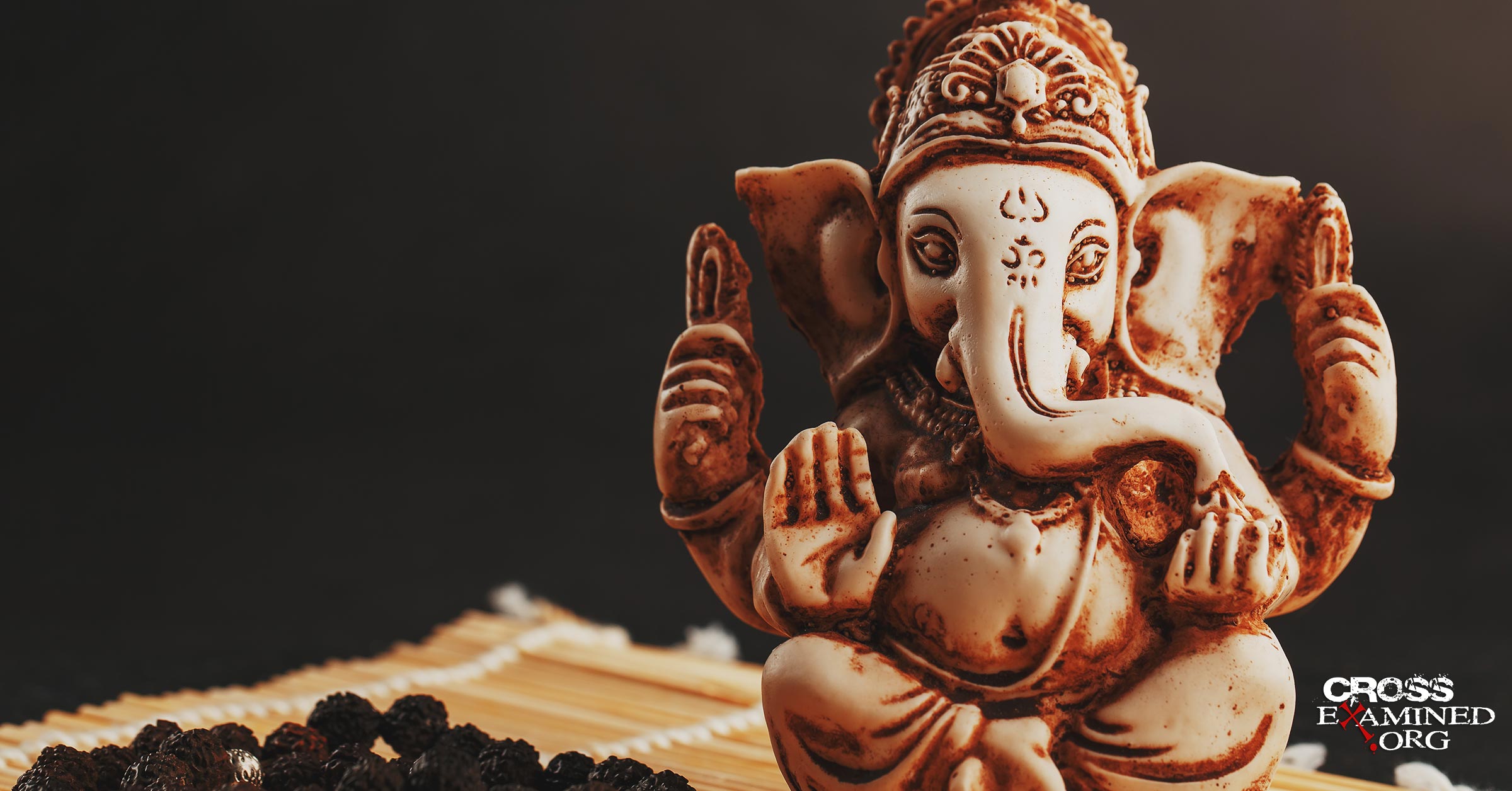Let’s talk about respectfully engaging with Hindus. Why? More than a billion people around the world say they’re Hindus. That’s about 15 percent of the world. So if you haven’t met someone at least interested in some aspect of Hindu culture, you may soon. The more we engage with our neighbors, the more we see that religion is a core part of many people’s lives. I like how Win Corduan once said, “Loving our neighbors means getting to know them. And getting to know them means getting to know their religion.” We need discover what makes their religion attractive to them. Why did they convert? It they were born into it, what keeps them loyal?
At the Hendricks Center, we produced a Table podcast series focused on respectfully engaging with Hindus. I invited William Subash, who pastors Crossroad Church in Bangalore, India and teaches New Testament Studies at the South Asia Institute of Advanced Christian Studies to help us think through Hinduism and what respectful engagement looks like.
In this post, I’ll the answers to three questions we discussed: What compels Hindus to stay Hindus? What attracts non-Hindus to Hinduism? How can engaging with Hindus happen respectfully?
Respectfully Engaging with Hindus
Before engaging with Hindus, you might ask, “What exactly is Hinduism?” The diversity represented by Hinduism means you’re going to get a range of responses. And they vary widely depending on who you talk to. For example, many Indians see Hinduism as a group of people, rather than a religion. In this context, Hindu practices are linked to cultural and family loyalty. In India, where about 80% of the population is Hindu, you’ll find agnostics, atheists, and polytheists all identifying as Hindus. Subash explains:
Hinduism is a conglomeration of many religions, many world views that often change, adapt, but will never have one claim. Indian Hinduism is different from the Hinduism practiced in Central America or Singapore, for example.
What Keeps Hindus Loyal to Hinduism?
Many Hindus remain because of cultural loyalty. There’s unity amidst diversity, and anyone who leaves loses their spot in the caste system— That’s a huge deterrent. The caste system is something you’re born into, and it dictates who you can marry, who you can work for, and even who you can talk to. There’s discrimination that still goes on today. For example, marriages usually only happen within your caste. And this whole system is supported by Hindu Scriptures: The Bhagavad Gita is part of Mahabharata scripture, which is divided into 18 chapters which talk about various tenets of the caste-based religion. People who violate these rules or leave Hinduism are sometimes even murdered. Keep this in mind when engaging with Hindus, as rejecting deeply held beliefs can be seen as a serious form of defection. Subash says:
They can go to the extent of “honor killing” …When a person marries from one caste to another caste or one Hindu religion to another religion, it becomes a major issue.
Why Do People Convert to Hinduism?
Many non-Hindus like the pluralistic nature of Hinduism. It accommodates the beliefs of animists, polytheists, and others who are sensitive to spiritual realities. But something you might not initially expect to find when engaging with Hindus is that agnostic scientists, atheist philosophers, or naturalists fit in, too. Beyond this, some are also fascinated by the idea of becoming a god or realizing their own divinity. Subash notes:
The ultimate desire of educated Hindus is to realize that they are gods. They say Aham Brahmasmi, “I am God.” …People get attracted because their fate is not properly defined. It is very attractive. They say, “One day, I am going to be God.”
While many Hindus incorporate Jesus into their worldview, Christianity’s exclusive nature challenges the extent of Hindu inclusivism. Still, many Hindus have responded to the gospel demonstrated through compassionate Christians meeting medical and educational needs, especially for those in the lowest castes. Even the promise of divinity falls short, as Hindu gods also suffer from imperfections. Those who recognize their need for freedom from sin may also discover the biblical concepts of atonement and redemption absent from Hinduism and come to find freedom in Christ.
What Respectfully Engaging with Hindus Looks Like
Humbly ask questions
When it comes to engaging with Hindus, begin by building a relationship, asking questions, and then gently begin to discuss spiritual things. Ask questions that help you understand who the person is and why they do the things they do, and why they believe what they believe. Be very careful not to come off like you think you’re better than your Hindu friend. The only way to break the stereotype of the “proud, know-it-all, triumphalist Christian” when talking to our Hindu neighbors is to consistently demonstrate humility.
Listen to their answers openly and honestly, without rushing into apologetic arguments. As you listen, understand what they mean by any Christian-sounding terms like “God” or “salvation.” For example, some Hindus use the term “born again” in the context of reincarnation. So don’t just think about engaging with Hindus as Hindus. Remember, some are agnostics or atheists. So engage each person as an individual. Get a spiritual GPS on your friend, so you can empathize and really get where they’re coming from.
Humbly talk about Jesus
Since most Hindus love talking about spiritual things, talking about your faith or their spirituality may not be as awkward as you might expect. Many Hindus are actually interested in Jesus’ teachings—especially his teachings about money.
Take it slow. Don’t rush into a gospel presentation or begin by critiquing Hinduism. It can’t look like an “us versus them.” Despite the exclusive nature of Christianity, it is important to note that Jesus is inclusive. Jesus is for everyone, and you don’t need to give up your cultural or ethnic identity to follow him.
As you continue engaging with Hindus, gently tell your story and explain how you came to know Jesus’s love. Unlike a God who is an impersonal force, Jesus forgives everyone who repents. While some schools of Bhakti Hinduism might suggest a loose concept of grace, you can’t get forgiveness for sin in that context. But this shouldn’t be a cause for arrogance. Jesus didn’t claim to be the only way as a pride thing. It’s just that he’s the only one who can step into the human condition and deal with the sin problem we all have. Hindu deities have no righteousness to give us. How can they get rid of anyone’s bad karma?
Engaging with Hindus: Conclusion
Here’s what I want you to take away from this post on engaging with Hindus: While many remain loyal to Hinduism for cultural and social reasons, converts are attracted to its pluralistic, adaptable nature. Hinduism can accommodate a spectrum of views, from atheism to the idea that you can become a God one day. Still, some people recognize their struggle with imperfection and find true atonement or grace absent from Hinduism. Many Hindus have become Christians through real relationships and a personal encounter with Jesus. Engaging with Hindus requires courage and compassion. And it’s best done by following Jesus’ example of not only speaking the truth but loving people well.
Recommended resources related to the topic:
Jesus Among Other Gods: The Absolute Claims of the Christian Message by Ravi Zacharias: https://amzn.to/2MFuBDZ
The Reincarnation Sensation by Norman Geisler: http://bit.ly/2LbaXfW
Counter Culture Christian: Is There Truth in Religion? (DVD) by Frank Turek: http://bit.ly/2zm2VLF
World Religions: What Makes Jesus Unique? mp3 by Ron Carlson: http://bit.ly/2zrU76Y
Mikel Del Rosario helps Christians explain their faith with courage and compassion. He is a doctoral student in the New Testament department at Dallas Theological Seminary. Mikel teaches Christian Apologetics and World Religion at William Jessup University. He is the author of Accessible Apologetics and has published over 20 journal articles on apologetics and cultural engagement with his mentor, Dr. Darrell Bock. Mikel holds an M.A. in Christian Apologetics with highest honors from Biola University and a Master of Theology (Th.M) from Dallas Theological Seminary where he serves as Cultural Engagement Manager at the Hendricks Center and a host of the Table Podcast. Visit his Web site at ApologeticsGuy.com.
Original Blog Source: http://bit.ly/2MFAvVt


















Facebook Comments